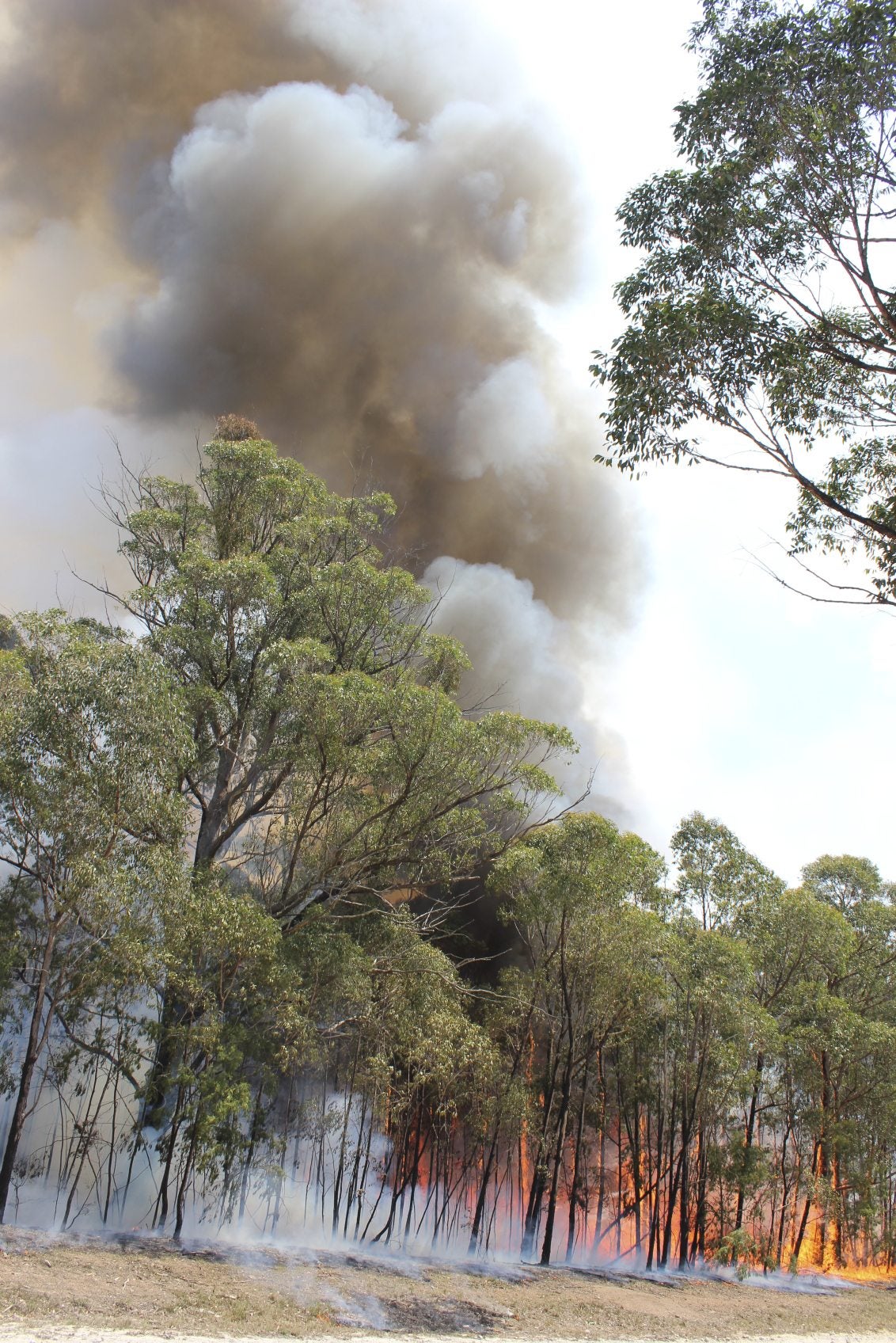Eucalyptus Fire Hazards: Are Eucalyptus Trees Flammable


California hillsides were ablaze last year, and it looks like a similar disaster may occur again this season. Eucalyptus trees are common in California and the warmer states of the United States. They are also found in Australia, of which many are native. The blue gum variety was introduced around the 1850s as ornamental plants and as timber and fuel. So, are eucalyptus trees flammable? In a nutshell, yes. These beautiful stately trees are filled with aromatic oil, which makes them highly combustible. The picture this paints is of California and other areas experiencing serious eucalyptus fire damage.
Are Eucalyptus Trees Flammable?
Eucalyptus trees are widespread in California and have been introduced to many other warm states. In California, the trees have spread so prolifically that there are entire woodlands almost completely made up of gum trees. Efforts are underway to eradicate the introduced species and return woodlands to their native species. This is because the eucalyptus has displaced natives and it changes soil composition where it grows, altering other life forms as it does so. Eucalyptus fire hazards are also cited in efforts to remove the trees. There are some native eucalypti, but the majority have been introduced. These hardy plants have delightfully scented, volatile oil in all parts of the plant. The tree sheds bark and dead leaves, which make a perfect pile of tinder under the tree too. When the oils in the tree heat up, the plant releases flammable gas, which ignites into a fireball. This accelerates the eucalyptus fire hazards in a region and discourages firefighting efforts. Removal of the trees has been recommended largely due to eucalyptus fire damage but also because they are taking the place of native species. The plants are considered dangerous in fire-prone areas because of their habit of shooting sparks if they catch fire. Eucalyptus oil and fire are a match made in heaven from the fire’s perspective but a nightmare for those of us in its path.
Eucalyptus Oil and Fire
On hot days, in Tasmania and blue gum’s other native regions, eucalyptus oil vaporizes in the heat. The oil leaves a smoggy miasma hanging over the eucalyptus groves. This gas is extremely flammable and the cause of many wildfires. The natural detritus under the tree is resistant to microbial or fungal breakdown due to the oils. This makes the tree’s oil a wonderful antibacterial, antimicrobial, and anti-inflammatory, but the unbroken-down material is like using kindling to start a fire. It is tinder dry and contains flammable oil. One bolt of lightning or a careless cigarette and the forest can easily become an inferno.
Fire Friendly Flammable Eucalyptus Trees
Scientists speculate that flammable eucalyptus trees evolved to be “fire-friendly.” Rapidly catching fire until there is no obvious tinder allows the plant to retain most of its trunk when fire moves on to find more to burn. The trunk can sprout new limbs and regenerate the plant unlike other types of trees, which have to re-sprout from the roots. The ability to retain the trunk gives the eucalyptus species a jumpstart on regrowing from the ashes. The plant is already head and shoulders above the native species when fire recovery begins. The eucalyptus trees' easy recovery added with its volatile oily gasses, make it a potentially threatening species for California woodlands and similar areas known to house these trees.
Sign up for the Gardening Know How newsletter today and receive a free copy of our e-book "How to Grow Delicious Tomatoes".

Bonnie Grant is a professional landscaper with a Certification in Urban Gardening. She has been gardening and writing for 15 years. A former professional chef, she has a passion for edible landscaping.